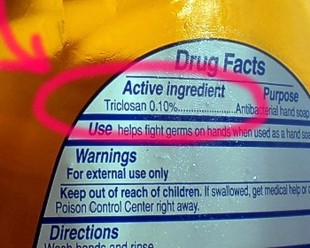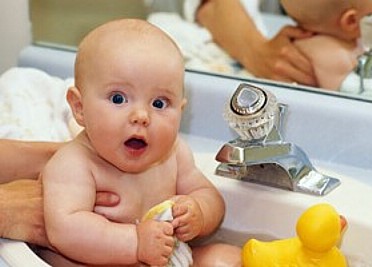Avon Phasing Out Antibacterial Chemical Over Concerns of Potential Adverse Health Effects
 June 24, 2014
June 24, 2014  Kyriaki (Sandy) Venetis
Kyriaki (Sandy) Venetis Avon is the latest company to begin phasing out the antibacterial chemical triclosan from its products because of increasing public concerns about its risks to human health and increasing evidence that antibacterial products are no more effective in killing germs than traditional methods like plain soap and water.
 Photo courtesy of business-ethics.com.
Photo courtesy of business-ethics.com.Triclosan is an active antimicrobial ingredient contained in a variety of personal care products – including toothpastes, face washes, soaps, and deodorants – where it acts to “slow or stop the growth of bacteria, fungi, and mildew,” says the U.S. Environmental Protection Agency.
Triclosan is a chemical also commonly found in other consumer products, including clothes, kitchenware, furniture, carpeting, toys, caulking compounds, and sealants. It’s also used for industrial purposes as an antimicrobial pesticide in equipment including conveyer belts, fire hoses, dye bath vats, and ice-making equipment.
Among the biggest health concerns for people though still comes from the chemical being incorporated in personal care products, where increasing evidence shows that the risks outweigh any potential benefits.
Looking at antibacterial chemicals in soaps, Colleen Rogers, a microbiologist with the U.S. Food and Drug Administration, said in a reported last December that “there currently is no evidence that over-the-counter antibacterial soap products are any more effective at preventing illnesses.”
The FDA report said that, “There are indications that certain ingredients in these soaps may contribute to bacterial resistance to antibiotics, and may have unanticipated hormone effects.”
 bath products,
bath products,  facial products,
facial products,  soap | tagged
soap | tagged  bath products,
bath products,  personal care products,
personal care products,  triclosan
triclosan 
